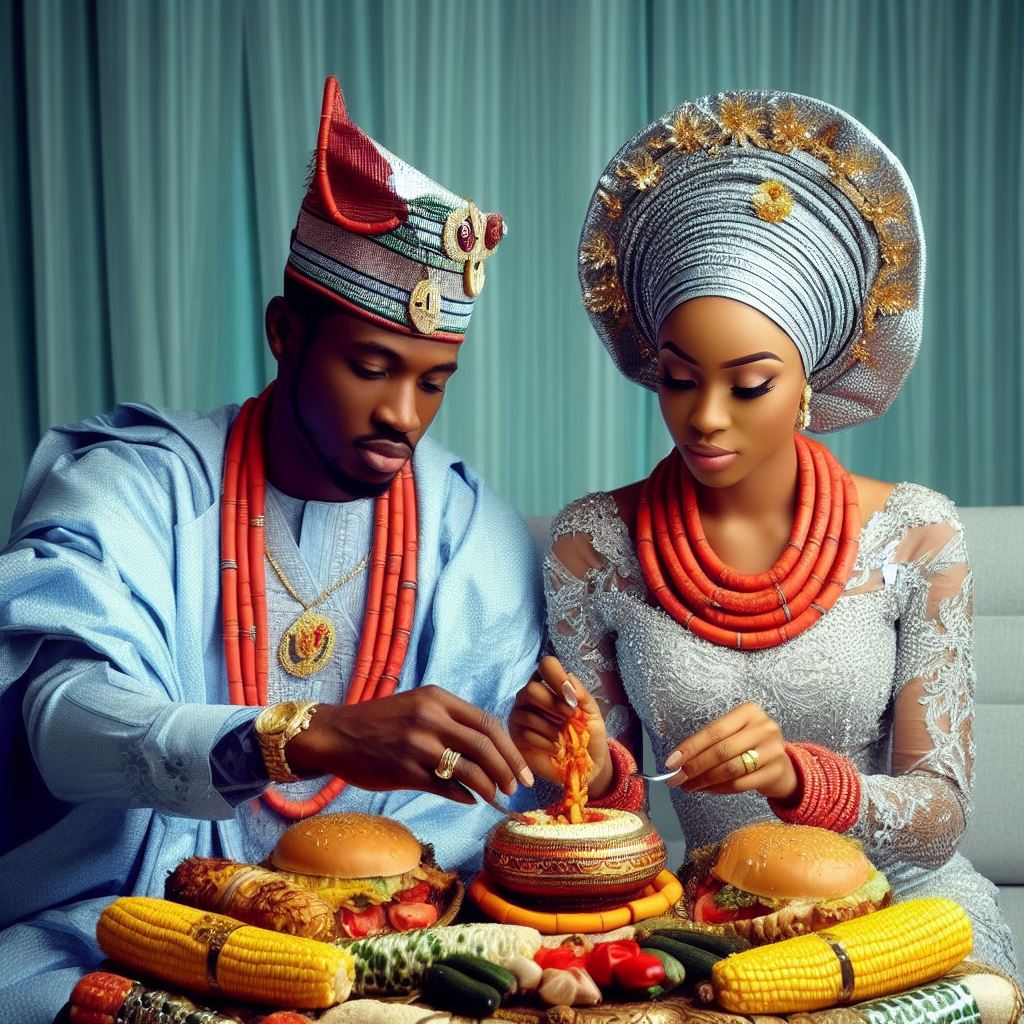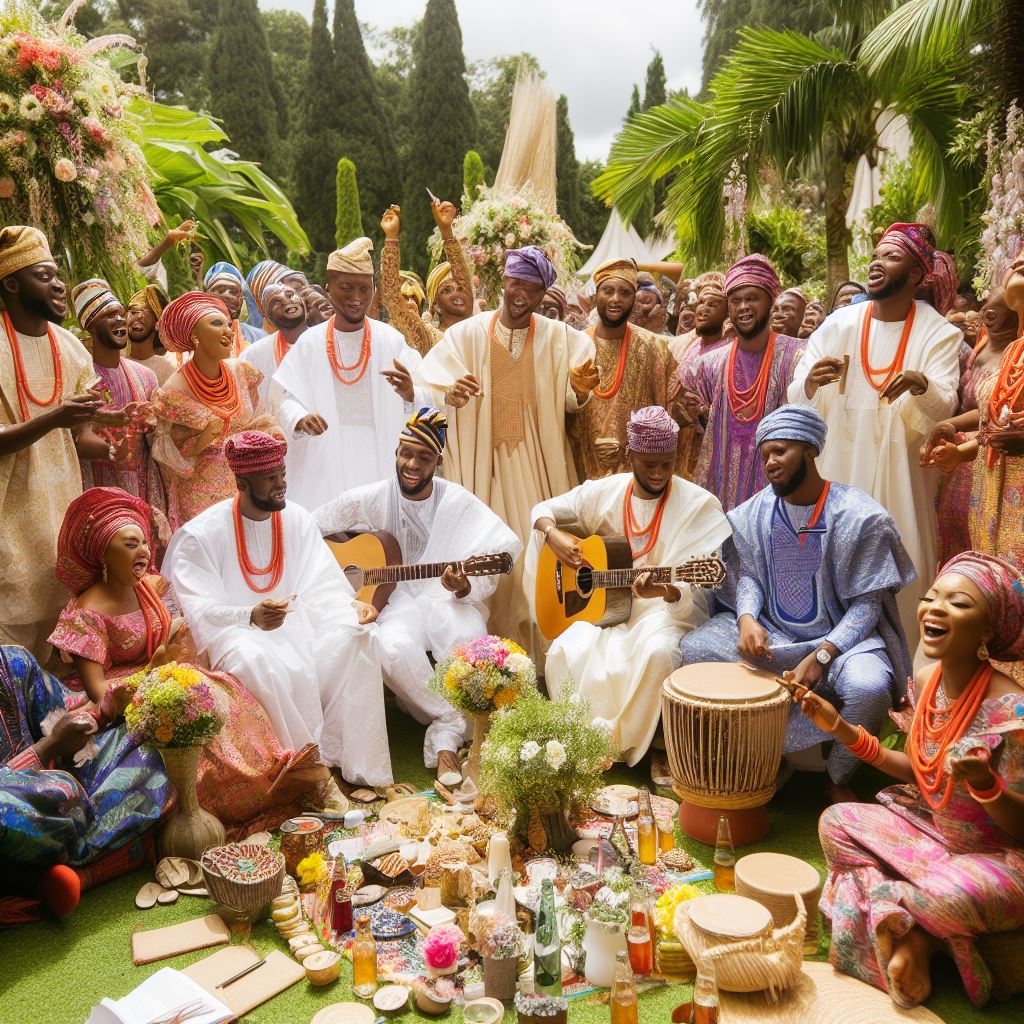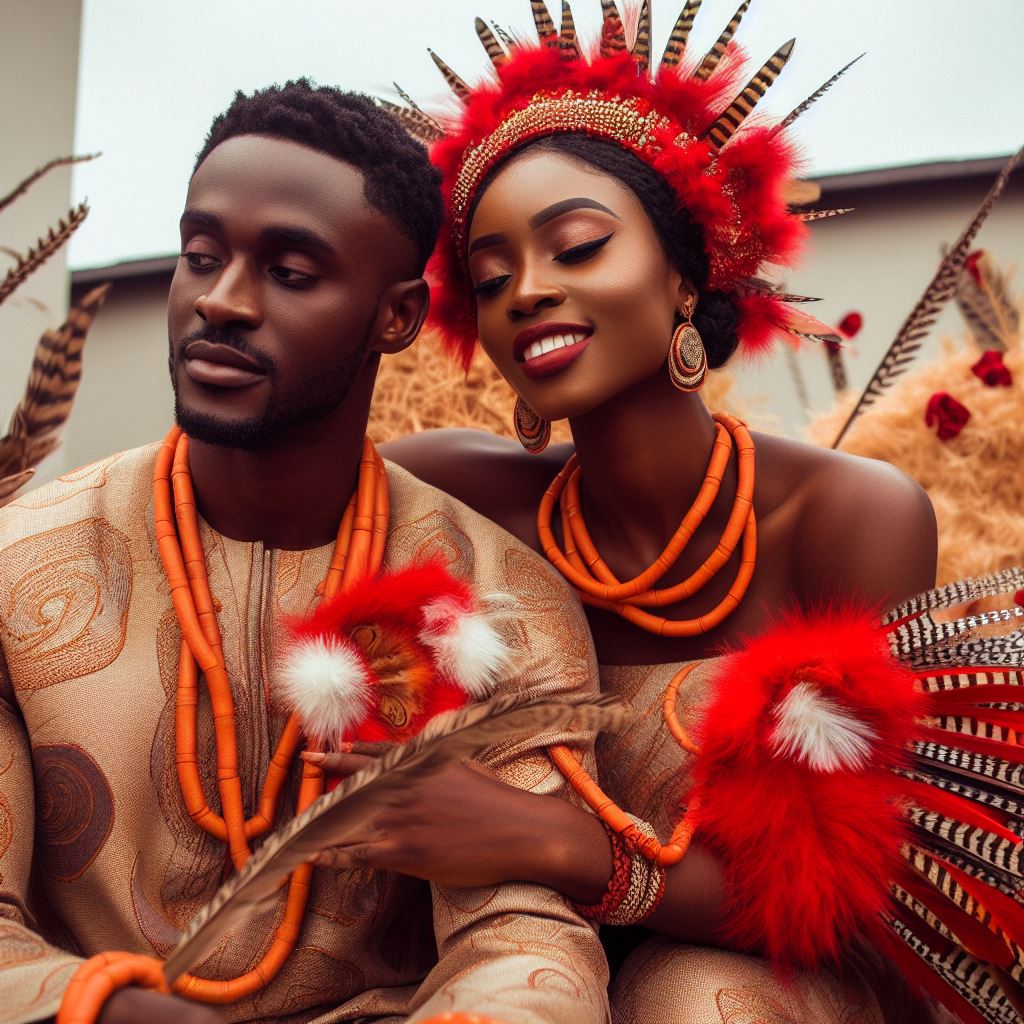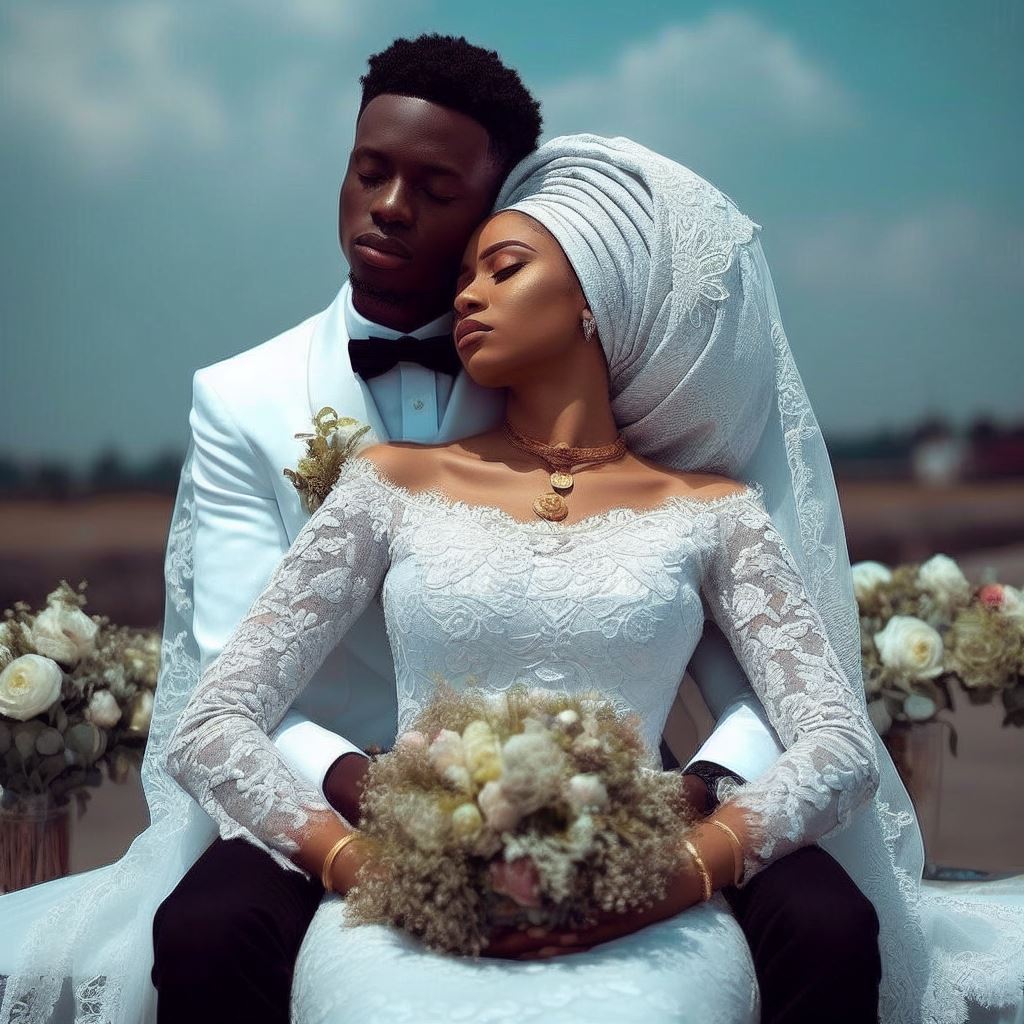Introduction
In this blog post, we will explore the historical perspectives on the evolution of honour in Nigerian marriages.
Nigerian marriage customs have undergone significant changes over time. Initially, honor in marriages centered on traditional practices.
As society modernized, the concept of honor evolved to adapt to new norms. Marriages, once arranged, now reflect personal choices.
Honor in Nigerian marriages, historically rooted in family and community values, has transitioned into a more individualized expression.
Traditional ceremonies remain important, but couples now have greater autonomy. Over time, gender roles and expectations have also shifted, influencing the concept of honor.
These changes underscore the dynamic nature of Nigerian marriage customs and their continued relevance in the contemporary landscape.
Understanding the evolution of honor in Nigerian marriages is crucial for comprehending the cultural dynamics and social norms that shape these unions.
Also,Understanding the evolution of honor in Nigerian marriages is vital for comprehending cultural shifts. It sheds light on how values have transformed over time, influencing contemporary relationships.
This knowledge empowers individuals to navigate matrimonial dynamics, fostering healthier unions.
By tracing the historical progression of honor in Nigerian matrimony, one can appreciate the significance of traditional customs and their impact on modern marriages.
Recognizing the evolution of honor enables us to adapt and harmonize old traditions with contemporary expectations. It aids in promoting equality, consent, and mutual respect within marital partnerships.
As Nigeria continues to evolve, comprehending these changes in honor can contribute to stronger, more fulfilling marriages.
Understanding honor’s evolution in Nigerian marriages is an essential step toward fostering lasting, harmonious relationships.
Pre-colonial Era: Traditional Perspectives on Honor in Marriages
Concept of honor in pre-colonial Nigeria
- The honor was highly valued and seen as a reflection of one’s character and societal standing.
- Honor encompasses qualities such as integrity, honesty, respect, and adherence to cultural norms.
- A person’s honor was not only individual but also reflected in their family’s honor.
- Honorable conduct was essential for maintaining social harmony and order.
The role of honor in traditional marriage ceremonies
- Honor played a crucial role in the matchmaking process and selection of spouses.
- Both families sought partners who possessed honorable traits and came from reputable backgrounds.
- Marriage alliances were often strategic, aiming to enhance the honor and reputation of both families.
- Brides were expected to bring honor to their new family through their conduct as wives and mothers.
Expectations and responsibilities of spouses
- Husbands were expected to be providers, protectors, and leaders of their households.
- Wives were responsible for maintaining the household, raising children, and supporting their husbands.
- Both spouses were expected to show mutual respect, loyalty, and fidelity in their marital relationship.
- Adultery, domestic violence, and disrespect were considered dishonorable and unacceptable.
Examples of honorable behaviors and actions
- Honorable men were those who displayed courage, generosity, honesty, and wisdom.
- Women who exhibited qualities such as humility, diligence, and loyalty were considered honorable.
- Resolving conflict peacefully, respecting elders, and adhering to cultural traditions were honorable actions.
- Taking care of one’s family, supporting community development, and contributing to society were honorable behaviors.
In essence, honor played a significant role in pre-colonial Nigerian marriages. It was not only an individual value but also a reflection of one’s family and community.
Honorable conduct was expected from both spouses, and it influenced the matchmaking process and selection of partners.
The concept of honor encompassed qualities such as integrity, respect, and adherence to cultural norms.
Examples of honorable behaviors included displaying courage, loyalty, and wisdom, as well as contributing positively to one’s family and community.
Understanding the historical perspectives on honor in Nigerian marriages is crucial for appreciating the evolution of this concept in modern times.
Read: Historical Origins of Nigerian Wedding Toast Traditions
Colonial Influence: Changing Dynamics of Honor in Nigerian Marriages
During the colonial period in Nigeria, the influence of colonial powers brought about significant changes in the way honor was perceived and practiced within marriages.
Impact of colonization on Nigerian society and marriage traditions
Colonization had a profound impact on Nigerian society and disrupted traditional marriage customs.
The colonizers introduced Western ideologies and systems of governance, which influenced various aspects of Nigerian life, including marriage.
Traditional practices and beliefs were challenged and sometimes replaced by the values and norms of the colonizers.
Introduction of Western concepts of honor and values
The arrival of colonial powers introduced new concepts of honor and values in Nigerian marriages.
Western ideas of honor emphasized individualism, personal autonomy, and adherence to certain moral standards.
This was in contrast to the traditional Nigerian notion of honor, which was more communal, placing importance on family reputation and fulfilling societal expectations.
Shift in gender roles and power dynamics within marriages
Colonial influence led to a significant shift in gender roles and power dynamics within Nigerian marriages.
Western ideas promoted a more egalitarian view of marriage, challenging the traditionally patriarchal nature of Nigerian society.
Women began to gain more agency and were encouraged to participate in decision-making processes within the family unit.
Conflicts between traditional and colonial values regarding honor
The introduction of Western concepts of honor often clashed with traditional Nigerian values, leading to conflicts within marriages.
While some individuals embraced the new ideals, others held steadfast to the traditional notions of honor.
This clash created tension and discord between spouses, as they navigated the complexities of merging these contrasting values.
Marriages were sometimes strained as partners grappled with the changing dynamics and attempted to reconcile their personal beliefs.
In general, the colonial influence on Nigerian marriages brought about significant changes in the dynamics of honor.
The introduction of Western concepts and values challenged traditional beliefs and led to shifts in gender roles and power dynamics.
Conflicts arose as individuals and couples attempted to reconcile these contrasting values, sometimes straining marriages.
Understanding the colonial legacy is crucial in comprehending the evolution of honor within Nigerian marriages and society as a whole.
Read: Historical Nigerian Books on Marriage: A Deep Dive
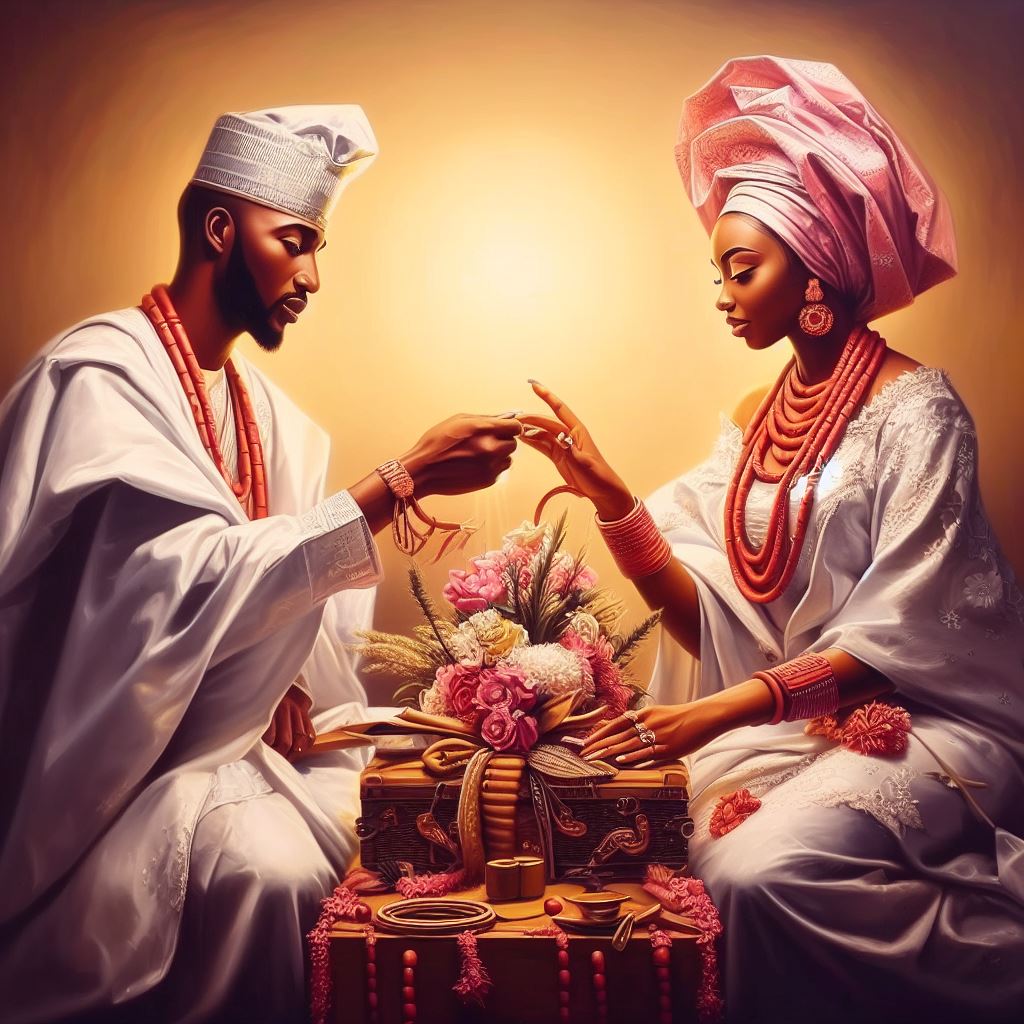
Post-Independence Era: Modern Perspectives on Honor in Marriages
Influence of westernization and globalization on Nigerian marriages
- The introduction of western values and ideals has influenced the concept of honor in Nigerian marriages.
- Globalization has exposed Nigerians to different cultural practices, challenging traditional notions of honor.
- Western media and pop culture have also played a significant role in shaping attitudes toward honor in marriages.
Changing societal attitudes towards honor and its significance
- Traditional gender roles and expectations have evolved, impacting the significance of honor in Nigerian marriages.
- Modern perspectives prioritize individual freedom and choice over rigid societal expectations.
- The concept of honor has shifted from being externally imposed to being a personal value system.
Role of education and urbanization in redefining honor in marriages
- Education has provided Nigerians with access to different ideas and perspectives, influencing their understanding of honor.
- Urbanization has brought about increased exposure to diverse cultures, which has further broadened the concept of honor.
- The urban lifestyle encourages independence and autonomy, leading to a redefined understanding of honor within marriages.
Challenges faced in upholding honorable behavior in modern marriages
- Conflicting values between traditional and modern perspectives create challenges in maintaining honorable behavior.
- Increased emphasis on materialism and individualism can undermine the importance of honor in marriages.
- Societal pressure and judgment can discourage individuals from pursuing honorable choices in their marriages.
- The influence of social media can create unrealistic expectations and put strain on marriages to appear honorable.
In fact, the post-independence era in Nigeria has brought significant changes to the concept of honor in marriages.
Westernization and globalization have challenged traditional views, while changing societal attitudes, education, and urbanization have redefined the meaning of honor.
However, challenges remain in upholding honorable behavior due to conflicting values and external pressures.
It is important for individuals to navigate these complex dynamics and find a balance between cultural expectations and personal values to establish honorable marriages in the modern era.
Read: Challenges and Triumphs: True Nigerian Marriage Stories
Uncover the Details: The Weight of Tradition: Modern vs. Cultural Views
Recent Trends and Challenges: Contemporary Honor in Nigerian Marriages
Impact of social media and popular culture on honor in marriages
- Social media and popular culture have greatly influenced the concept of honor in Nigerian marriages.
- Exposure to unrealistic relationship ideals on social media can create discontent and contribute to dishonor.
- Social media platforms have increased the visibility and accessibility of information related to extramarital affairs.
- Popular culture and the media often promote the idea of individual fulfillment at the expense of traditional honor values.
- Nigerian couples now face pressure to conform to societal expectations influenced by social media and popular culture.
Discussion on issues such as infidelity, domestic violence, and honor killings
- Infidelity has become a major challenge that compromises the honor within Nigerian marriages.
- Domestic violence is a grave issue that tarnishes the honor of both individuals and families.
- Honor killings, although rare, still occur in some parts of Nigeria, fueled by a distorted sense of preserving honor.
- These issues highlight the erosion of traditional honor values and the need for reevaluation and intervention.
Efforts to preserve and revive traditional values of honor
- Various organizations and individuals are making efforts to preserve and revive traditional values of honor in Nigerian marriages.
- Cultural events and gatherings promote the importance of honor and its role in maintaining healthy relationships.
- Campaigns and awareness programs focus on educating couples about the significance of honor and its influence on marital harmony.
- Religious institutions play a vital role in emphasizing the importance of honor and providing guidance to couples.
Struggles faced in balancing honor and individual autonomy in marriages
- Nigerian couples often find it challenging to balance the expectations of honor with the desire for individual autonomy.
- Traditional expectations placed on couples clash with evolving notions of personal freedom and independence.
- Increasingly, couples seek compromises that accommodate both honor and individual autonomy, adapting to modern realities.
- This struggle highlights the need for open communication, flexibility, and mutual respect within Nigerian marriages.
Generally, recent trends and challenges in Nigerian marriages concerning honor are influenced by social media and popular culture.
Issues like infidelity, domestic violence, and honor killings pose threats to traditional honor values.
However, efforts to preserve and revive honor through cultural events, campaigns, and religious institutions are underway.
Balancing honor and individual autonomy remains a struggle, necessitating open communication and flexibility.
By understanding these challenges and working towards preserving honor, Nigerian marriages can strive for harmony and cultural authenticity.
Read: Marriage is Honourable: The Socio-Economic Implications in Nigeria
Conclusion
The evolution of honor in Nigerian marriages has gone through various stages and transformations.
Understanding historical perspectives is crucial for a deeper appreciation of contemporary marriages in Nigeria.
As Nigerian society continues to modernize, the future of honor in marriages remains uncertain.
Overall, this blog section has explored the evolution of honor in Nigerian marriages, highlighting its significance in both the past and present.
By understanding the historical perspective, we gain valuable insights into the foundations of honor and how they have shaped the institution of marriage in Nigeria.
It is important to recognize that honor in Nigerian marriages has changed over time, influenced by factors such as globalization, urbanization, and shifting gender roles.
By delving into the historical context, we can better appreciate the complexities and nuances of honor and its role in contemporary Nigerian marriages.
Looking ahead, the future of honor in Nigerian marriages is uncertain. With increasing exposure to Western ideals, the meaning and importance of honor may continue to evolve.
It is vital for individuals to navigate the delicate balance between tradition and modernity, ensuring that honor is upheld while also respecting individual freedoms and equality within marriages.
The historical perspectives on the evolution of honor in Nigerian marriages provide a foundation for understanding the complexities of this cultural phenomenon.
By delving deeper into its roots, we can gain a more profound appreciation for the role of honor. Contemporary Nigerian marriages work towards ensuring its preservation in a rapidly changing society.

